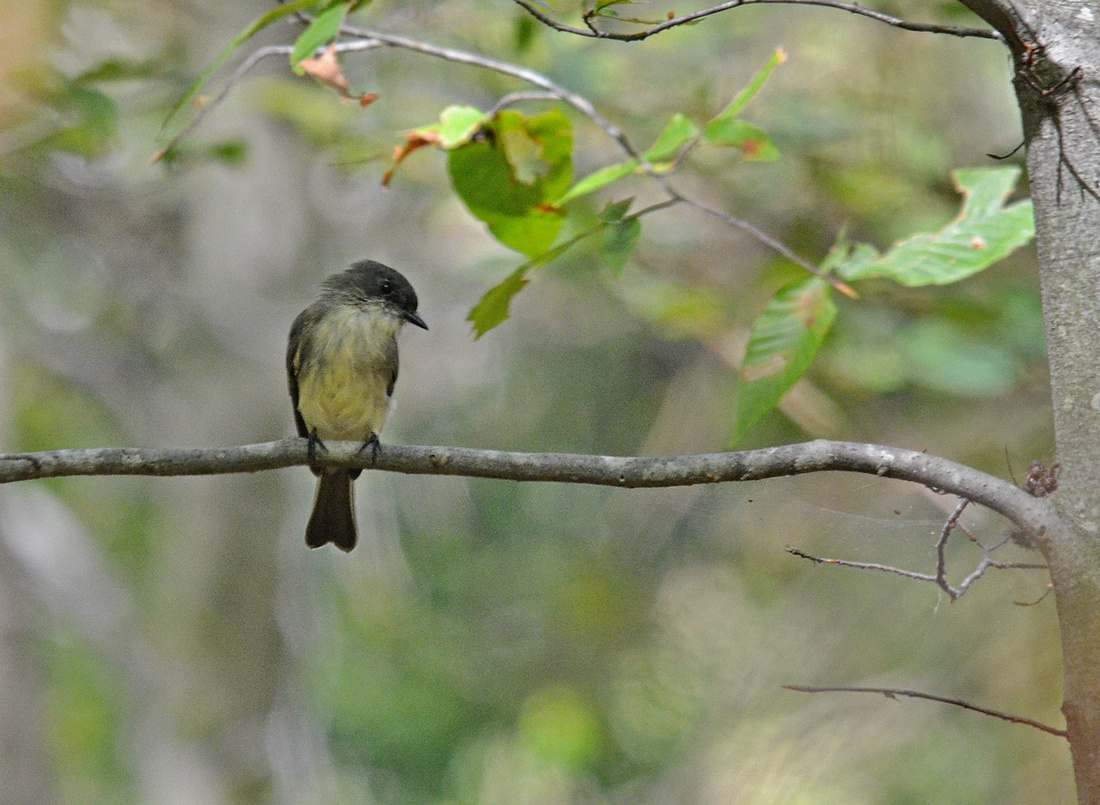Waiting for a sign
 Phoebe, home
Phoebe, home
For the past few days, the woods have been alive with young Phoebes. They're quiet, unlike their incessant ratchety calls—an approximation of their common name—when they return back to the ridge in early spring, but they're hardly shy and retiring. In fact, to judge from their almost non-stop flitting back and forth, they seem anxious to the point of being apprehensive. This close-to-autumn fidgety-ness has a biological name. Behavioral scientists call such antsy behavior Zugunruhe, which is a German word that means "migratory restlessness." Birds in the throes of Zungunruhe are essentially all dressed up with nowhere to go: they're primed physiologically to make the long journey south, but the timing isn't quite right. So they fidget and wait for a sign—perhaps in the weather, perhaps in the stars, perhaps in the declining length of the days, perhaps, well, who knows?—that tells them to take off. In the meanwhile, the Phoebes enjoy their surroundings, fatten up, and try to remain calm.